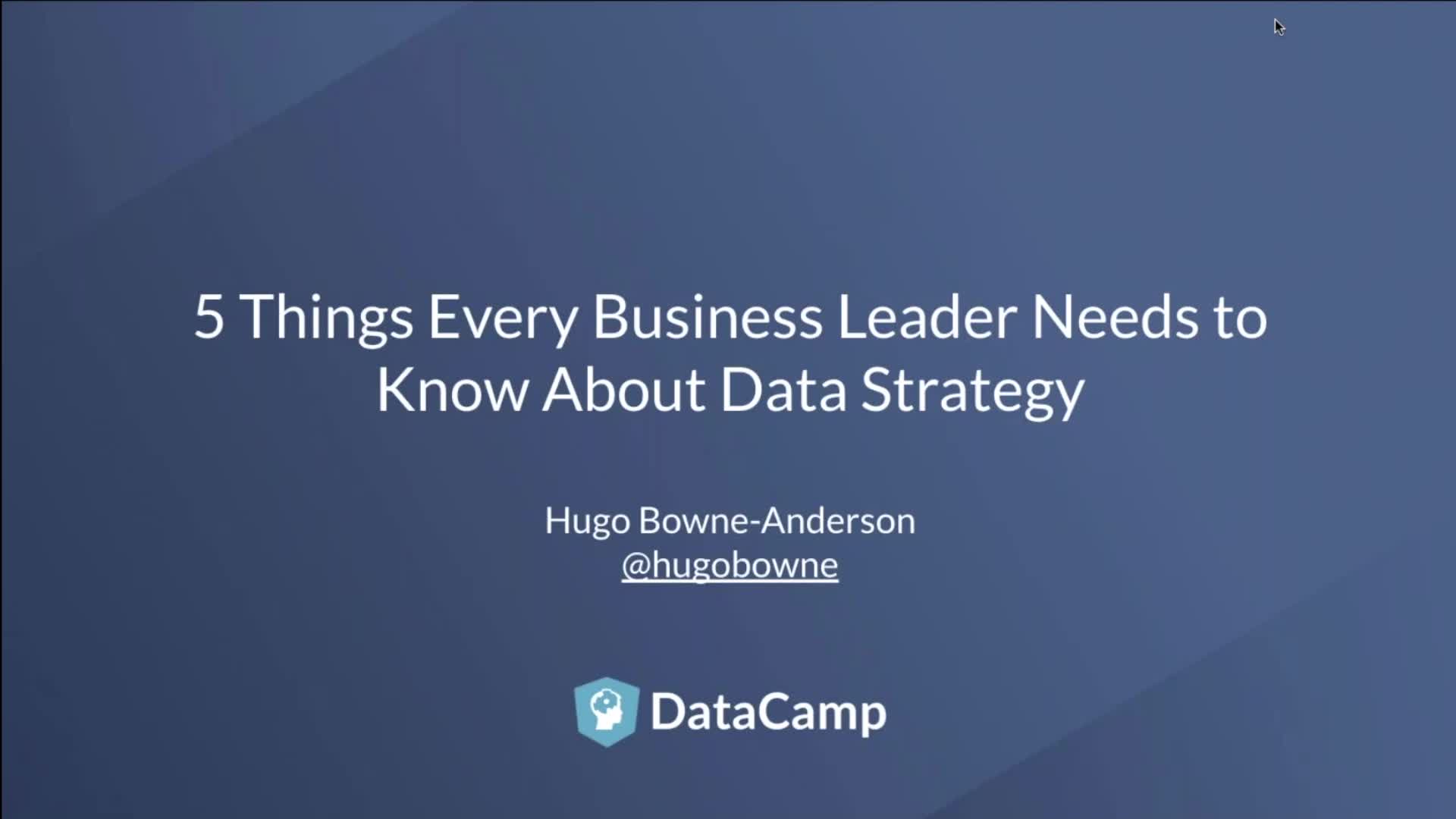Falantes
Treinar 2 ou mais pessoas?
Obtenha acesso à biblioteca completa do DataCamp, com relatórios, atribuições, projetos e muito mais centralizadosRelacionado
white paper
What Your Employees Must Learn to Work With Data in the 21st Century
These are the topics and skills that employees must know to work with data.webinar
How to Build the Business Case for Data Literacy
Learn practical strategies for building a business case for data literacy.webinar
How AI Can Improve Your Data Strategy
Find out how AI, ML, and data science can inform your data strategy.webinar
Data Science for Business Leaders
Here's how to build a high-performance data team aligned with company strategy.webinar
What Your Employees Must Learn to Work With Data in the 21st Century
Here's how data can impact your employees' work and what they need to know.webinar
Data Literacy in the 21st Century
Get the low-down on what it takes to be data-literate today.Join 5000+ companies and 80% of the Fortune 1000 who use DataCamp to upskill their teams.
Loved by thousands of companies

